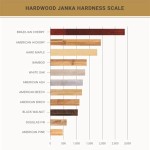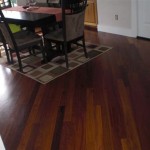Bamboo Flooring: Delving into the Pros and Cons
When embarking on a quest to rejuvenate your living space, the realm of flooring choices can be overwhelming. Amidst the myriad of options, bamboo flooring emerges as a contemporary and eco-conscious contender. However, like all flooring materials, bamboo flooring carries its unique set of advantages and drawbacks. Understanding these aspects is paramount before making an informed decision.
Advantages of Bamboo Flooring
Durability and Longevity: Bamboo, known for its inherent strength, renders flooring with exceptional durability. Its hardness rivals that of oak, making it highly resistant to wear, scratches, and dents. This attribute ensures longevity, with bamboo flooring capable of withstanding years of heavy foot traffic.
Eco-Friendliness: Sustainability is a defining characteristic of bamboo flooring. Bamboo, a rapidly renewable resource, grows abundantly and can be harvested without depleting natural forests. Additionally, the manufacturing process often employs eco-friendly techniques, making it an environmentally sound choice.
Aesthetic Versatility: Bamboo flooring offers a captivating aesthetic appeal that complements diverse interior design styles. Its natural grain patterns and warm hues add a touch of understated elegance to any space. Moreover, bamboo flooring comes in a variety of colors, from light and airy to deep and dramatic, providing ample options to match your desired ambiance.
Moisture Resistance: Contrary to common misconceptions, bamboo flooring exhibits admirable moisture resistance. Strand-woven bamboo, in particular, is engineered with high-density fibers, rendering it suitable for areas prone to occasional spills or humidity, such as kitchens or bathrooms.
Disadvantages of Bamboo Flooring
Prone to Expansion and Contraction: Bamboo flooring, like many natural materials, is susceptible to expansion and contraction due to fluctuations in temperature and humidity. This can result in gaps between planks or buckling if not properly installed and maintained.
Cost: Bamboo flooring tends to be more expensive than traditional hardwood flooring options, such as oak or maple. However, its durability and eco-friendliness may justify the higher upfront investment in the long run.
Susceptibility to Scratches: While bamboo flooring is generally durable, it is not impervious to scratches. Heavy furniture or sharp objects can leave marks on the surface, especially on softer varieties of bamboo flooring.
In conclusion, bamboo flooring presents a compelling combination of advantages and disadvantages. Its durability, sustainability, and aesthetic versatility make it an attractive choice for eco-conscious homeowners seeking a long-lasting and stylish flooring solution. However, its susceptibility to moisture, potential for expansion and contraction, and higher cost should be carefully considered before making a final decision.

Bamboo Flooring Pros And Cons Diy Family Handyman

Pros And Cons Of Bamboo Flooring

Pros And Cons Of Bamboo Floors Why We Chose Them For Our House Plaster Disaster

Bamboo Flooring Pros And Cons Forbes Home

The Pros And Cons Of Bamboo Flooring Astrobrite Local Family Run

Kitchen Designs Flooting Strand Woven Tiger Stripe Bamboo Floor Now Read Engineered Flooring Hardwood Laminate

The Pros And Cons Of Bamboo Flooring Carpet Mill S

Pros And Cons Of Bamboo Flooring Advantage Disadvantage
Pros And Cons Hardwood Floors Vs Bamboo Flooring Builder

Posts Tagged Advantages Of Bamboo Flooring The Company
See Also







